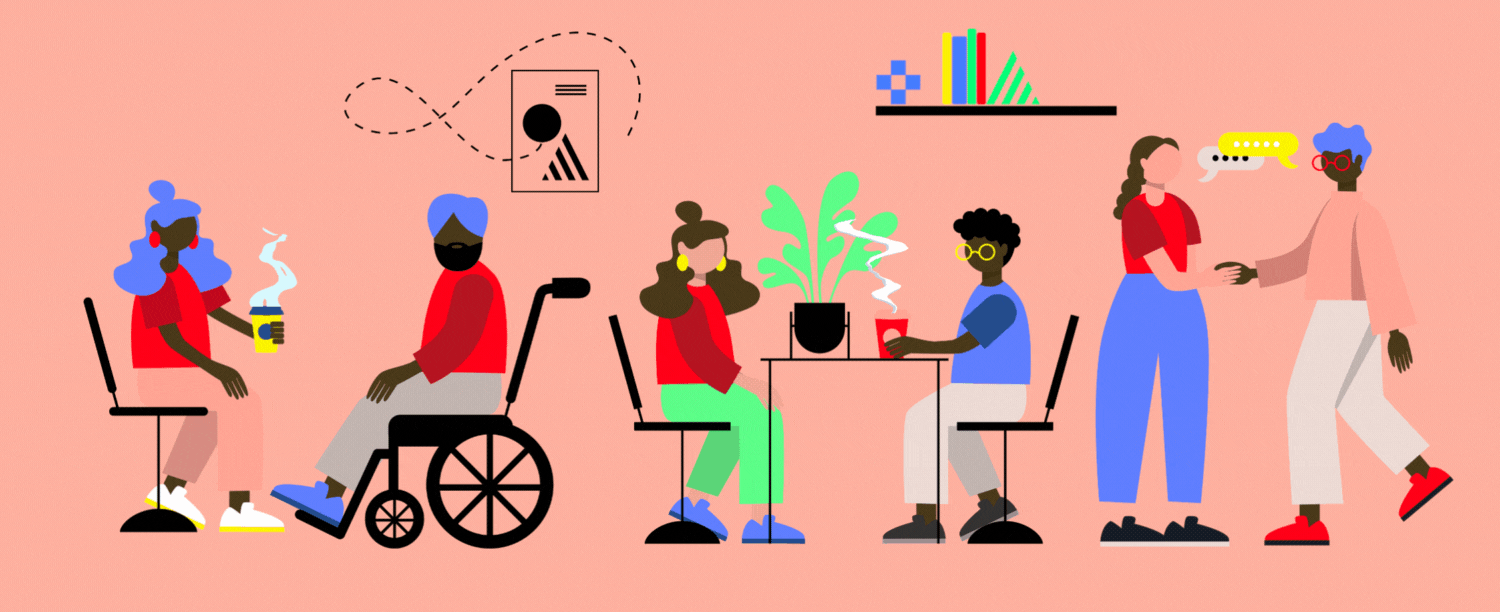11 Diversity & Inclusion Policies You Absolutely Need
Embracing diversity and inclusion isn’t just the right thing to do. It's also a smart move for businesses.
Companies that promote D&I see significant boosts in innovation, competitiveness, resilience and even profits. In fact, from 2018 to 2020, companies with over 30% women on their boards had higher year-over-year revenue. Similarly, those with over 30% non-white directors outperformed those with less than 20%.
This type of workplace doesn’t just materialise out of thin air; it takes time and careful planning. But a great place to start (or restart) is with your diversity and inclusion policies. In this article, we'll explore some of the D&I policies you absolutely need to create an inclusive and forward-thinking organisation.
1) Equal Employment Opportunity Policy
An Equal Employment Opportunity (EEO) policy is the foundation of any D&I programme. This policy ensures that all individuals, regardless of their race, gender, age, disability, religion, or other protected characteristics, have an equal opportunity to succeed within your organisation. It should clearly state your company's commitment to providing a discrimination-free workplace.
2) Anti-Harassment Policy
An anti-harassment policy prevents and addresses harassment of any kind, including sexual harassment, racial harassment, and other forms of discrimination. It should outline procedures for reporting incidents and the consequences for violating the policy. Training programmes to educate employees about these policies are vital. You can even take it one step further with unconscious bias training or even privilege training.
3) Diversity Recruitment Policy
A diverse workforce begins with a commitment to diverse recruitment. A well-defined diversity recruitment policy can help ensure that your organisation attracts candidates from various backgrounds and experiences. It may include strategies such as blind recruitment, diversity-focused job boards, and partnerships with organisations that specialise in this area.
4) Inclusive Benefits and Support
Consider offering inclusive benefits and support programmes that cater to a wide range of employee needs. This can include flexible work arrangements, family-friendly policies, support for employees with disabilities or even workplace wellbeing programmes. Promoting work-life balance and overall wellbeing is essential for fostering inclusion.
5) Diversity, Equity and Inclusion Training
Providing regular diversity, equity and inclusion training to employees is vital. These programmes can help raise awareness, combat unconscious bias, and promote cultural competence among your workforce. Training should be ongoing to keep these topics fresh in people’s minds.
6) External DEI Board
External DEI Board are made up of external experts and community leaders who are brought in by organisations to provide valuable insights into their diversity and inclusion initiatives.
With their outsider perspective, these individuals can offer strategic guidance, review policies, engage with communities, and hold your organisation accountable for its diversity goals. Essentially, they serve as an independent and experienced advisory panel, ensuring that your DEI initiatives are aligned with best practices.
7) Employee Resource Groups (ERGs)
Establishing Employee Resource Groups is a powerful way to create a sense of belonging among employees. ERGs provide a platform for employees to connect, share experiences, and advocate for diversity and inclusion within the organisation. Encourage the formation of ERGs that represent different affinity groups.
8) Equal Pay and Promotion Opportunities
Ensuring that compensation and promotional opportunities are equitable is a fundamental aspect of diversity, equity and inclusion. Regularly review pay scales to identify and rectify any gender or racial disparities and implement transparent promotion processes to mitigate biases.
9) Supplier Diversity Programme
Extend your commitment to diversity beyond your workforce by implementing a supplier diversity programme. Partner with diverse-owned businesses e.g., minority-owned, women-owned and LGBTQ+-owned.
10) Inclusive Leadership Development
Develop a leadership pipeline that reflects the diversity of your workforce. Invest in leadership development programmes that identify and nurture talent from underrepresented groups, preparing them for leadership roles within the organisation.
11) Accountability and Reporting
Lastly, establish clear mechanisms for tracking and reporting progress on your DE&I initiatives. Regularly publish reports to hold the organisation accountable and demonstrate your commitment to stakeholders.
Final Thoughts
Most organisations will have some form of diversity, equity and inclusion policies. It’s not a new concept by any means. But our understanding of it has changed a lot recently.
And this hasn’t stopped. Every year we uncover new biases and systemic issues. Some organisations are even finding that some of the checks and balances they’ve put in place to help – have done just the opposite.
That’s why regularly reviewing and updating your DE&I policies and frameworks is critical to a healthy future, both economically and socially. These policies not only promote fairness and equal opportunities within the workplace but also contribute to the broader societal goal of building a more inclusive and harmonious community.
By fostering diversity, equity, and inclusion, organisations pave the way for innovation, creativity, and collaboration, ensuring a future where everyone can thrive.
If you need support with improving your diversity and inclusion policies, don’t hesitate to get in touch to find out more about our DEI consulting services.
Written by Michael
Michael Mauro is the founder of a forward-thinking organisation specialising in leadership, HR and employee development. With over a decade of global experience, Michael has become a leading voice on topics such as culture, inclusion, wellbeing, and the future of leadership.




